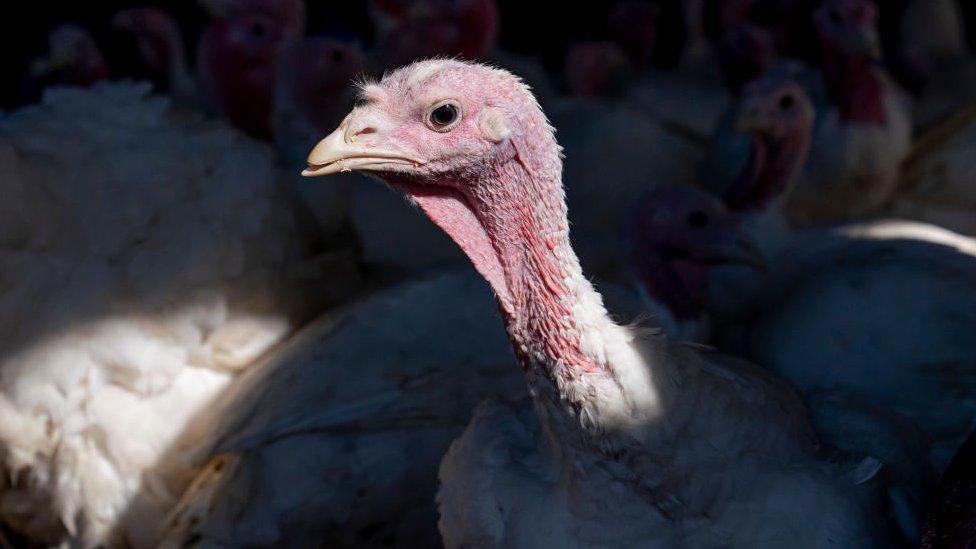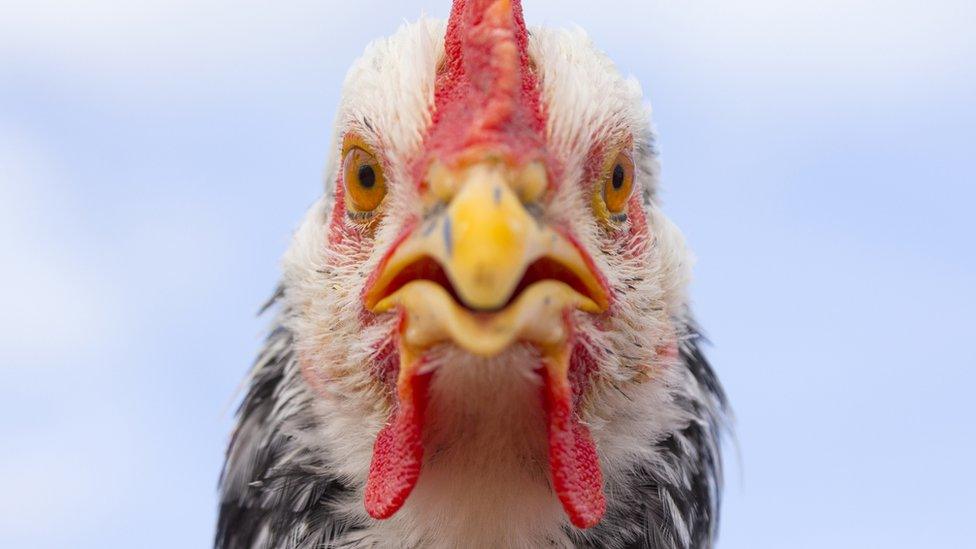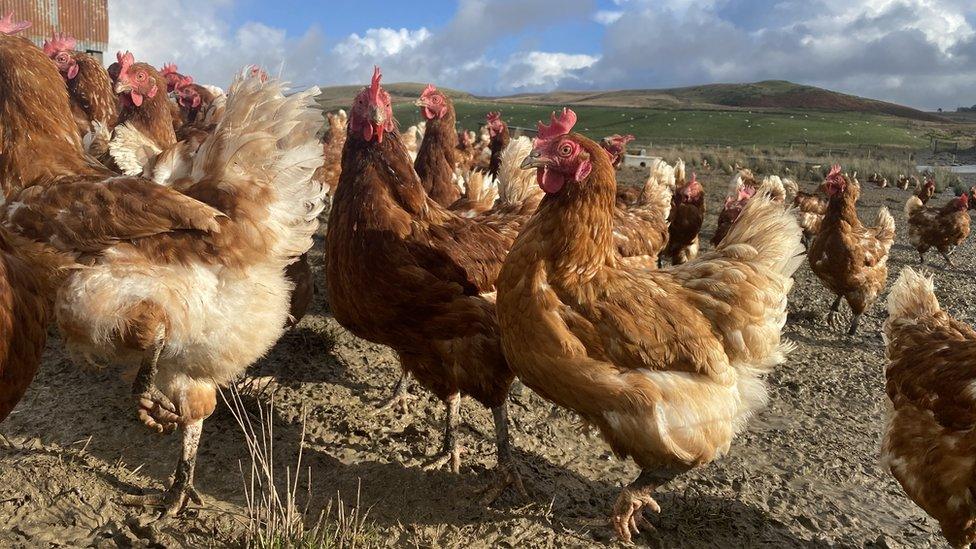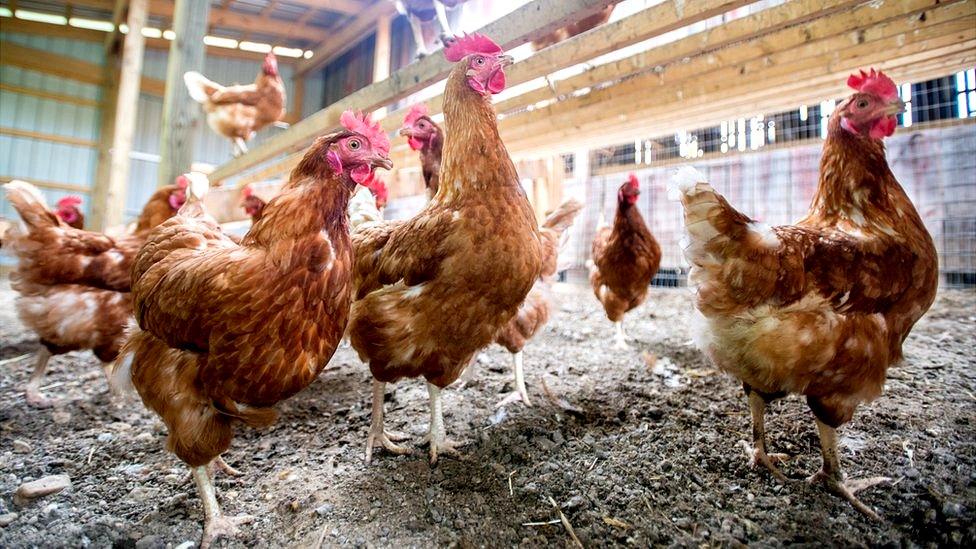Bird flu: 50 million birds die in record US outbreak
- Published

Bird flu deaths caused a rise in turkey prices ahead of the US Thanksgiving holiday
Over 50 million birds have died amid a record-breaking outbreak of avian flu in the United States, according to the Department of Agriculture (USDA).
This year's total of 50.54m birds - including chickens and turkeys - has surpassed a previous high set in 2015.
Flocks in over 40 states have been affected, more than double the number of states in the previous outbreak.
While the risk for humans is low, authorities have warned that safety measures should be taken near birds.
The disease is spread by wild birds which transmit the virus through feathers, faeces and direct contact.
"Wild birds continue to spread HPAI [highly pathogenic avian influenza] throughout the country as they migrate, so preventing contact between domestic flocks and wild birds is critical to protecting US poultry," Rosemary Sifford, the USDA's chief veterinary officer, was quoted as saying by Reuters.
In a 3 November announcement about the ongoing outbreak, the US Centers for Disease Control (CDC) said that while the risk to the general public remains low, it is advising Americans to take "preventative measures" - such as avoiding direct contact with wild birds and avoiding unprotected contact with poultry - to prevent spreading the disease to humans, pets, birds and other animals.
"This applies not just to workplace or wildlife settings, but potentially to household settings where people have backyard flocks or pet birds with potential exposures to wild or domestic infected birds," the statement added.
While cases of human infections are rare, the CDC's website warns that the virus could spread when airborne - such as via droplets or dust - if it gets into a person's eyes, nose or mouth, or is inhaled.
Symptoms of bird flu in humans have previously ranged from eye redness and mild flu-like symptoms, to pneumonia and difficulty breathing. World Health Organization (WHO) data shows that only 868 cases of transmission from birds to humans were recorded between 2003 and 3 November 2022, resulting in 456 deaths.
In the US, only one case - a Colorado resident who was directly exposed to poultry - has been reported in the recent outbreak. The person reported fatigue for a few days and recovered, the CDC said in April.
Poultry deaths stemming from avian flu led to rising prices for eggs and turkey ahead of last week's Thanksgiving holiday in the US. The American Farm Bureau, a US-based insurance company and lobbying group, said the price of a traditional Thanksgiving turkey had risen 21% over the last year and now stands at nearly $29 (£24.05) for a 16 pound (7.5kg) bird.
Record outbreaks of avian flu have also swept across the UK and Europe, as well as parts of Africa and Asia.
The World Organisation for Animal Health believes the wave of outbreaks is the result of international trade, farming practices and migratory wild birds. Over 4.6 million birds died or were culled between mid-October and mid-November alone, according to the organisation.
On 31 October, concerns over the outbreak prompted officials in England to order that all poultry and captive birds must be kept indoors from 7 November.
A similar measure went into effect on Monday in Northern Ireland, and is scheduled to be implemented in Wales on 2 December.
Related topics
- Published18 June 2024

- Published26 November 2022

- Published25 November 2022

- Published22 November 2022
